Technology Reporter
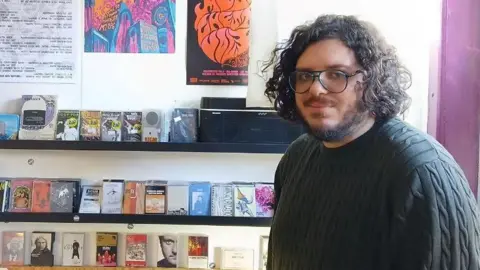 Alex Tadross
Alex TadrossMars Tapes in Manchester is the last shop in the UK that just sells music on cassette tapes in the UK, according to co-owner Alex Tadross.
Business is booming: “When the Oasis tour was announced we sold out of pretty much anything Oasis. Everything flew out,” he says.
Also popular are cassettes of 80s music, in particular Kate Bush, which Mr Tadross says is probably because her music featured in the hit Netflix show Stranger Things.
“We get a mix of customers,” he says. “A lot of them are customers in their 20s, and teenagers, getting into it for first time, then a few people who had cassettes in their 40s and 50s and buy them for the nostalgic aspect.
“But the majority are under 30. We have a lot of teenagers coming with their parents.”
The shop’s own branded cassette players are also popular.
I’ve had people come in to buy their first cassette players,” says Mr Tadross.
 Getty Images
Getty ImagesThe brisk business at Mars Tapes is part of a wider trend of people buying and fixing old music equipment.
Between 2020 and 2024, Google searches for “CD player repair near me” increased by 23%, while “Audio equipment repair near me” grew by 91%, according to trend data sourced by software firm SEMRush.
A report from Statista forecasts that the global electronics repair service market is expected to double in size from $122bn (£96bn) in 2021 to $240bn (£190bn) in 2033.
So why are some music lovers looking for alternatives to digital music services?
Perhaps modern Bluetooth speakers, earbuds and headphones lack the character of older equipment.
“The market is saturated with devices that offer low price and convenience, but provide an impersonal, sterile experience,” says Sarah Dodge, strategic design manager at the Ellen MacArthur Foundation.
“When you repair an item, you feel more attachment to it, so people may be drawn to a more empowering and rewarding ownership experience.”
For Mark Maher, fixing electrical equipment was a hobby, but soaring demand saw him quit his job as a manager for a multinational power transmission equipment business in September to focus on it full time.
In fact, demand “got so out of hand” Mr Maher has closed the contact section of his website.
“There’s absolutely a growing trend in repairing vintage audio equipment,” says Mr Maher from his business Perton Electronics in the West Midlands.
“People are wanting to restore all sorts, like Sony Walkmans, radio tape decks, and portable CD players they had and loved as teenagers. There’s a lot of nostalgia there.”
He says people are restoring old audio gear they’ve bought on platforms such as Ebay. “Things were certainly built better back then, and are much more repairable than the latest equipment.”
He thinks he’s also in demand as “there’s a genuine shortage of people that can repair things,” he says.
Mr Maher also runs a YouTube channel, Mend it Mark, which has almost 100,000 subscribers.
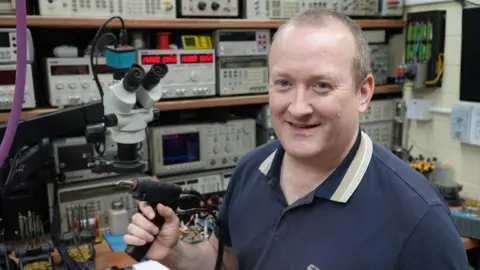 Mark Maher
Mark MaherRefurbished tech marketplace Back Market says that its audio equipment category jumped an average of 123% year on year since its launch on the platform in 2016.
It says record players are its top selling products among the retro audio tech.
Over at the Fixing Factory, a repair centre in Camden, London, Dermot Jones, manager of innovation and development, says that audio equipment makes up a high proportion of the repairs the organisation sees through its doors.
“We get a bit of everything,” says Mr Jones. “Old cassettes, CD players, headphones, speakers, plus turntables. What’s good about the old gear is they kind of last [longer], and you can find out the specification, and there’s service manuals available for many up until the 80s.
With some of the audio equipment, you can even open the case and inside there’s a diagram [of how it looks inside], even with arrows pointing at the screw; they’re nicely designed.”
He says these days electrical equipment looks like it is “designed to break”.
Mr Jones adds: “It’s hardly ever designed to be opened up and fixed; it’s designed and assembled quickly like no one has considered it breaking. Manufacturers have held that knowledge rather than sharing it. Our repairers would have an easier time fixing stuff [if they did].”
Ms Dodge says the move to repair supports the shift to a circular economy, a system where materials never become waste and nature is regenerated.
“One of the principles of the circular economy is to keep products in use, at their highest utility and value, for as long as possible. The thinking is that if you take a product like a CD player and send it to landfill, it becomes waste.
“Even if you recycle it, and return it to its material level, you’re stripping away all the energy that went into turning those materials into a CD player in the first place. ”
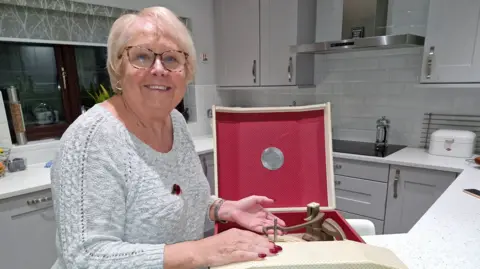 Mark Hammond
Mark HammondBringing to life old music equipment can bring back special memories.
In the run up to Christmas last year, Mike Hammond was inspired to organise a memorable gift for his wife of over 50 years.
Gathering dust in the loft was a record player his wife, Ellen, received from her parents as a present in 1960, when she was just 10-years-old. The problem was it was broken.
“I was never going to throw it away,” says Mr Hammond, who lives in Seisdon, near Wolverhampton. “There was too much history [associated with it].”
He found Mr Maher who fixed it just in time for Christmas.
On Christmas Day, Mr Hammond asked Ellen to go into the utility room where she found the record player playing one of their favourite records, A Hard Day’s Night by The Beatles.
Ellen’s reaction was worth it, he told me.
“There were tears,” says Ellen. “It was really emotional. Some of my cousins visited and said, ‘Oh my god, we remember coming to your house and seeing that record player’.”



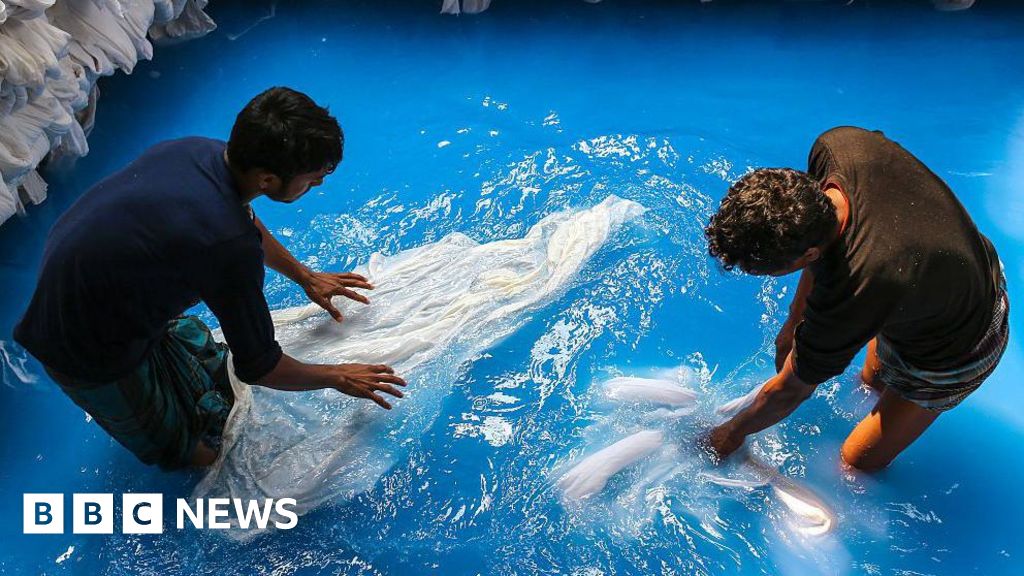





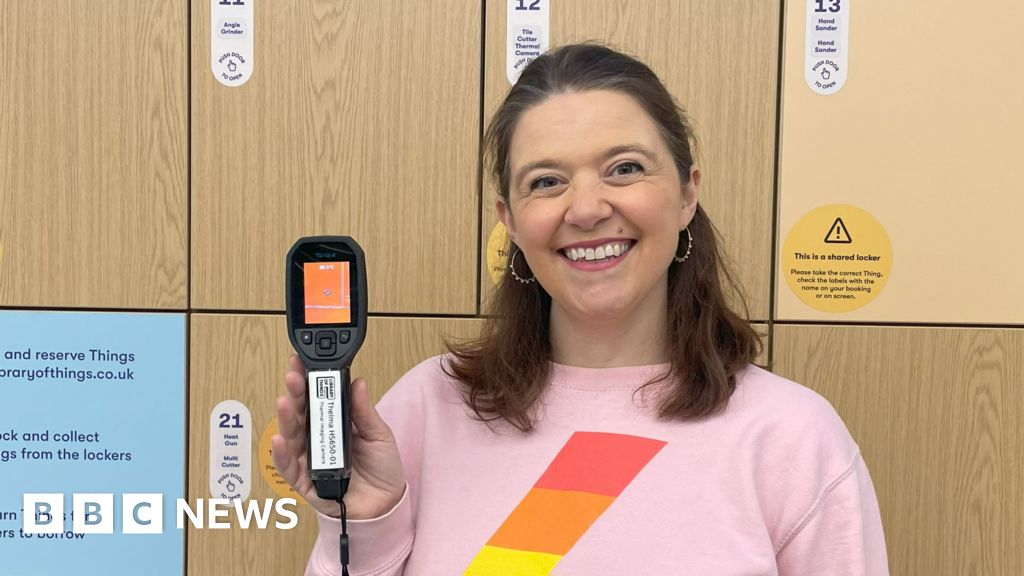







Leave a Reply